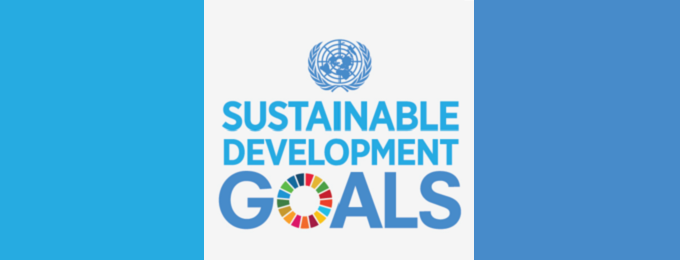The European Commission released a Reflection Paper on the implementation of the Agenda 2030 as part of the debate on the Future of Europe.
On 25 September 2015, the United Nations (UN) General Assembly unanimously adopted the Agenda 2030 in New York. At the core of the agenda are the 17 Sustainable Development Goals (SDGs) and 169 associated specific targets, which UN Members pledge to reach within the next 15 years. The goals are interconnected, universal in their application and call for an inclusive approach in implementation to leave no one behind in the transformation process. UN Members have full sovereignty on how to implement the SDGs and can participate in voluntary monitoring frameworks.
On 30 January 2019, the European Commission (EC) published a Reflection Paper on SDGs as the sixth part of a series of reflection papers contributing to the debate on the Future of Europe, a discussion started by the EC’s White Paper of March 2017. The Reflection Paper is a follow-up on a Communication published in November 2016 and contains a long-term European strategy with concrete sectorial policy proposals.
The 2016 Communication was a first response to the UN Agenda 2030, showing how already existing EU programmes incorporate the SDGs. It elaborated on how deeply intertwined the ten priorities of the Juncker-Commission are with all of the 17 SDGs, although “Sustainable Development” (SD) is not explicitly stated within them. However, the ten points did mention climate change and the need for an Energy Union. The focus of the EC’s SDG implementation strategy was mostly on external policy action, promoting the EU as a global implementer and driver of sustainability. The Communication served as a first work stream regarding EU implementation of SDGs. Furthermore, the Commission announced the launch of a high-level multi-stakeholder platform on the SDGs.
In the newly published Reflection Paper, the EC emphasizes that sustainability not only concerns environmental questions, but equally economic and governance dimensions. Therefore, there is a need for an overarching policy framework corresponding to the universal and interconnected nature of the SDGs. They present four key areas of planned policy action, building on already existing EU programs: 1) moving from a linear to a circular economy, 2) from farm to fork: reforming the food system, 3) future-roof energy, buildings and mobility and 4) a fair social transition. The paper mentions education, research and innovation as key enablers, which have to become stronger in the future, since they underlie almost all SDGs. According to the paper, the EU is in a good initial position, given the many programmes, which already address SD. Therefore, it can have a first mover advantage through early action and reap the benefits from the transition to a sustainable society. These benefits are comparative advantages throughout all sectors that ultimately contribute to Europe’s future global competitiveness. The last chapter of the paper outlines three scenarios for the future of SDG implementation, of which the EC clearly favours the first one: an overarching SDG implementation strategy for the EU and its Member States (MS), positioning the EU as a global leader towards a more sustainable future. The second strategy suggests continuing integrating SDGs in EU policies but without imposing member states’ action, while the third scenario focuses on external European policy actions solely.
The SDG watch group – an alliance of NGOs – already uttered a reaction to the Reflection Paper. They criticise that the EC’s focus lies on economic growth and that it took the Commission too long to come up with a response to the Agenda 2030. Furthermore, they criticise that the EC focused on external policy actions concerning development policy towards third countries for too long, whilst neglecting the internal aspect of the transition to SD. Nevertheless, the SDG watch group urges the European Parliament and the EC to commit themselves to the first proposed scenario, since the other two are considered unacceptable.

